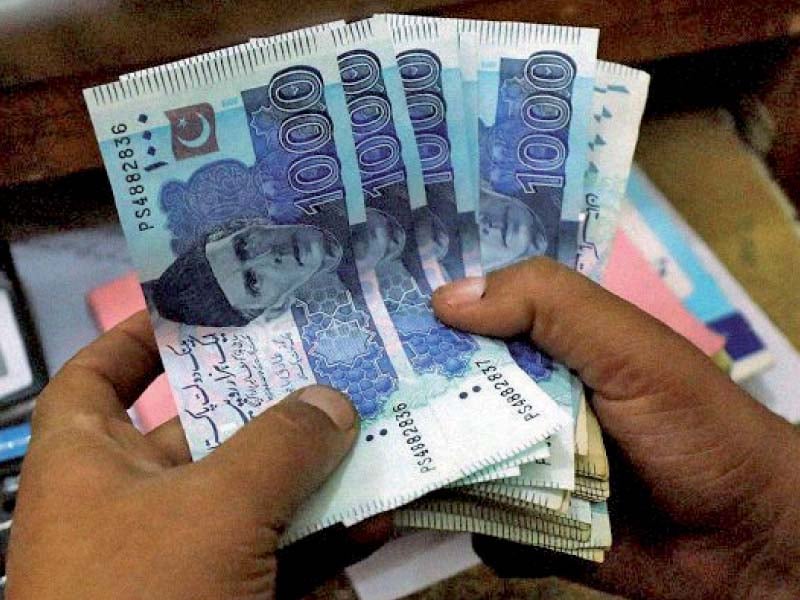
The poor balance in such policies - which are more favourable towards commercial entities and exploitative towards the individual investors in different saving schemes - have resulted in a spike in government borrowings from commercial banks.
The banks’ total investment - mostly in the government debt securities (T-bills/PIBs) which is a way of the government’s borrowing from commercial banks - surged to an all-time high at Rs9.79 trillion on April 30, 2020, the State Bank of Pakistan (SBP) reported on Friday.
“On the other hand, the rate of domestic saving has tumbled to 4.6% of GDP at present compared to 18.4% in 2002,” Economist Shahid Hasan Siddiqui said while talking to The Express Tribune.
Besides, the banks advances - loan to the private sector - slightly reduced to Rs8.22 trillion in April after touching a record high at Rs8.26 trillion in March, the central bank said.
“It was until 2008 that banks’ advances stood 30-40% higher than investments (in the government debt securities). Now the situation has reversed,” Siddiqui said.
He said the banks’ resolve to make maximum investment in risk-free government debt securities rather than performing its original job of providing affordable loans to the private sector and individuals have caused the disruption.
Banks used to offer loans to corporate and individuals only when the government reduced its borrowing from banks. However, the International Monetary Fund’s (IMF) condition under the latest $6 billion loan programme to Islamabad that the government would make no more borrowing from the central bank with effect from July 1, 2019 convinced it to bridge financing gaps through the commercial borrowing, he said.
“Banks do not do this (invest in government paper and avoid private sector) across the globe,” said Siddiqui who has served at banks in the West.
He said the government is required to implement banking regulations which demand banks to share their profit with depositors.
“The banks’ profit in Pakistan surged to over Rs250 billion at present compared to Rs7 billion in the year 2000. However, their share of profit with depositors (eg through saving accounts) has remained low,” he said.
“The rate of return on saving accounts has reduced to 6% yesterday (Friday) compared to 11.25% in February following the central bank cut its benchmark interest rate to 8% compared to 13.25% in February.”
“The banks have unnecessarily linked the rate of return on saving accounts with the SBP benchmark interest rate. The banking spread - the difference between higher rate of lending and the lower rate of return on saving accounts - stood at a huge 5.37% in February. “We used to work at half-a-percentage point spreads in the West,” he said.
He urged upon the government to reduce the spreads by 1.5-2% immediately through passing on the benefit of higher banking margins on lending to the banking depositors.
Banks are charging huge from borrowers and paying very little to depositors in Pakistan. This has gradually distorted the culture of savings over a period of time in the country.
“The massive drop in domestic savings rate is one of the several reasons due to which the government has to increase its reliance on expensive commercial loans,” he said. The drop in rate of return on saving schemes over a period of time has discouraged people to save through investing in different schemes, including saving accounts at commercial banks and national saving schemes, he said.
According to the National Clearing Company of Pakistan Limited (NCCPL), banks and development financial institutions (DFIs) have pulled out over Rs8.72 billion from Pakistan Stock Exchange (PSX) since July 2019 when the government returned to commercial banks for budgetary borrowing.
Siddiqui said drop in collection of tax revenue, exports, and increase in expenditures especially in this testing time of the coronavirus pandemic has led the government to make higher commercial borrowing.
He said the current government added a fresh Rs12,900 billion to the total foreign and local debt and liabilities in the first two years of its rule. “This (Rs12,900 billion) was the total volume of foreign and local debt and liabilities in the first 64 years of the country’s independence,” he said.
Meanwhile, banking deposits dropped 4.36% to Rs14.47 trillion in April compared to a record high Rs15.13 trillion in March, the SBP reported.
The drop is seen after people opted to keep cash in hand and made panic buying of essential goods to avoid any untoward situation under the lockdown imposed late in March to contain Covid-19 in Pakistan, Siddiqui said.
Published in The Express Tribune, May 17th, 2020.
Like Business on Facebook, follow @TribuneBiz on Twitter to stay informed and join in the conversation.

1735196035-0/beyonce-(7)1735196035-0-165x106.webp)




1730379446-0/WhatsApp-Image-2024-10-31-at-17-56-13-(1)1730379446-0-270x192.webp)




1735025557-0/Untitled-(96)1735025557-0-270x192.webp)











COMMENTS
Comments are moderated and generally will be posted if they are on-topic and not abusive.
For more information, please see our Comments FAQ